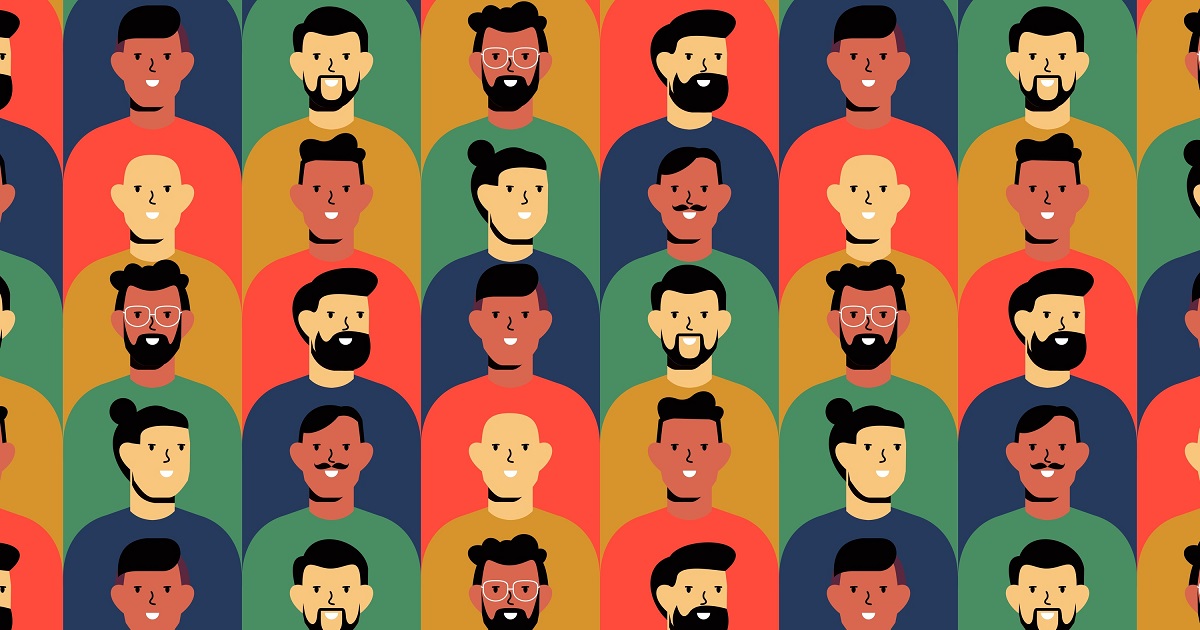
Amy is the daughter to Lore, granddaughter to Rae, and great granddaughter to Rita.
She currently serves as CEO at Mothers Matter Canada and previously as Executive Director of Dress for Success Vancouver, Director of Engagement at the Minerva Foundation for BC Women, and as a development and governance consultant to organizations such as the RBC Foundation, the Global Centre for Pluralism, and the Canadian Mental Health Association.
Amy’s passion for practical ways to generate equity, create economic inclusion, opportunity and prosperity for all informs everything she does, including her volunteerism. She is serving her second term as Chair of the Women’s Advisory Committee for the City of Vancouver where she advises Council and staff on enhancing access and inclusion for women and girls to fully participate in City services and civic life. She has previously served as Chair of the Dress for Success Canada Foundation, and was nominated for the YWCA Vancouver’s Women of Distinction Awards in 2023. She’s a member of the Banff Forum and WNORTH.
Amy and her husband have lived all over Canada and now happily and humbly call the unceded, ancestral and traditional territories of the xʷməθkʷəy̓əm, Sḵwx̱wú7mesh, and səlilwətaɬ Nations home, along with their pets and overgrown library.
About Mothers Matter Canada
Mothers Matter Canada (MMC) is a national organization dedicated to empowering socially isolated and economically vulnerable mothers by providing innovative, evidence-based programs that support early childhood education, strengthen parent-child bonds, and promote community integration. Through partnerships and advocacy, MMC works to break cycles of poverty and isolation, ensuring mothers and their children achieve their full potential and thrive in welcoming, inclusive communities. When mothers thrive, children flourish, and communities prosper.

Nicole Denier is a sociologist with expertise in work, labour markets, and inequality. She has led award-winning work on the intersection of family diversity and economic inequality, including research on the economic wellbeing of 2SLGBTQI+ people in Canada and immigrants in North America. Nicole is currently an Associate Professor of Sociology at the University of Alberta. She serves as Co-Director of the Work and Family Researchers Network Early Career Fellows program, as well as on the editorial boards of Canadian Studies in Population and the Canadian Review of Sociology/Revue canadienne de sociologie.

Simona Bignami is a demographer specializing in quantitative methods and family dynamics. Broadly speaking, she is interested in the relationship between social influence, family dynamics, and demographic outcomes and behaviours, and the extent to which empirical evidence helps us understand this relationship. Her most recent work focuses on migrants’ and ethnic minorities’ family dynamics, attempting to improve their measurement with innovative data and methods, and to understand their role for demographic and health outcomes. Her research on these topics takes a comparative perspective, and spans from developing to developed country settings. Although her research is quantitative, she has experience collecting household survey data and conducting qualitative interviews and focus groups in different settings.

Liv Mendelsohn, MA, MEd, is the Executive Director of the Canadian Centre for Caregiving Excellence, where she leads innovation, research, policy, and program initiatives to support Canada’s caregivers and care providers. A visionary leader with more than 15 years of experience in the non-profit sector, Liv has a been a lifelong caregiver and has lived experience of disability. Her experiences as a member of the “sandwich generation” fuel her passion to build a caregiver movement in Canada to change the way that caregiving is seen, valued, and supported.
Over the course of her career, Liv has founded and helmed several organizations in the disability and caregiving space, including the Wagner Green Centre for Accessibility and Inclusion and the ReelAbilities Toronto Film Festival. Liv serves as the chair of the City of Toronto Accessibility Advisory Committee. She has received the City of Toronto Equity Award, and has been recognized by University College, University of Toronto, Empowered Kids Ontario, and the Jewish Community Centres of North America for her leadership. Liv is a senior fellow at Massey College and a graduate of the Mandel Institute for Non-Profit Leadership and the Civic Action Leadership Foundation DiverseCity Fellows program.
About the Organization: The Canadian Centre for Caregiving Excellence supports and empowers caregivers and care providers, advances the knowledge and capacity of the caregiving field, and advocates for effective and visionary social policy, with a disability-informed approach. Our expertise and insight, drawn from the lived experiences of caregivers and care providers, help us campaign for better systems and lasting change. We are more than just a funder; we work closely with our partners and grantees towards shared goals.

Summary of a study on homelessness among immigrant families

Highlights from a study exploring the impact of the migration process in Canada on family wellbeing

Findings from a study on relationships in migrant families after reunification

Findings from a study on caregiving experiences of newcomer families in Canada
A report prepared for Expert Group Meeting on megatrends and families

Final report on COVID-19 IMPACTS: Newcomer and Refugee Mothers in Canada survey.

Download A Snapshot of Family Diversity in Canada (February 2018).
For more than 50 years, the Vanier Institute of the Family has monitored, studied and discussed trends in families and family life in Canada. From the beginning, the evidence has consistently made one thing clear: there is no single story to tell, because families are as diverse as the people who comprise them.
This has always been the case, whether one examines family structures, family identities, family living arrangements, family lifestyles, family experiences or whether one looks at the individual traits of family members, such as their ethnocultural background, immigration status, sexual orientation or their diverse abilities.
Building on our recent infographic, Family Diversity in Canada (2016 Census Update), our new Statistical Snapshot publication provides an expanded and more detailed portrait of modern families in Canada, as well as some of the trends that have shaped our vibrant and evolving family landscape over the years. Based on current data and trend analysis, this overview shows that diversity is, was and will continue to be a key characteristic of family life for generations to come – a reality that contributes to Canada’s dynamic and evolving society.
Highlights include:
- According to Statistics Canada, there were 9.8 million Census families living across Canada in 2016.
- 66% of families in Canada include a married couple, 18% are living common-law and 16% are lone-parent families – diverse family structures that continuously evolve.
- Among Canada’s provinces, people in Quebec stand out with regard to couple/relationship formation, with a greater share living common-law than the rest of Canada (40% vs. 16%, respectively) and fewer married couples (60% vs. 84%, respectively) in 2016.
- In 2016, 1.7 million people in Canada reported having an Aboriginal identity: 58% First Nations, 35% Métis, 3.9% Inuk (Inuit), 1.4% other Aboriginal identity and 1.3% with more than one Aboriginal identity.
- In 2016, 22% of people in Canada reported that they were born outside the country – up from 16% in 1961.
- In 2016, more than 1 in 5 people in Canada (22%) reported belonging to a visible minority group, 3 in 10 of whom were born in Canada.
- 73,000 same-sex couples were counted in the 2016 Census, 12% of whom are raising children.
- In 2016, there were nearly 404,000 multi-generational households in Canada – the fastest-growing household type since 2001 (+38%).
- In 2011, 22% of Inuk (Inuit) grandparents, 14% of First Nations grandparents and 5% of Métis grandparents lived with their grandchildren, compared with 3.9% of among non-Indigenous grandparents.
- In 2014, 1 in 5 Canadians aged 25 to 64 reported living with at least one disability. Disability rates were higher for women (23%) than men (18%).
- More than one-quarter (27%) of Canadians surveyed in 2014 said religion is “very important” in their lives.
- One-quarter of Canadians reported “no religious affiliation” in the 2011 Census (most recent data available), up from 17% in 2001.
Download A Snapshot of Family Diversity in Canada (February 2018).
The recent wildfire in northern Alberta, which began in early May and has only recently been brought under control, has had a profound impact on Fort McMurray and its surrounding communities. Approximately 2,400 buildings were destroyed, including many family homes and businesses, and the fire ravaged nearly 600,000 hectares of land. Many of the families in the region have experienced significant trauma due to their losses, the evacuation of more than 80,000 people and the overall impact on the community.
Live-in caregivers (foreign nationals living in Canadian homes and employed to provide child or adult care) working in and around Fort McMurray have been strongly affected by these events. These people comprise a unique and important workforce that is highly educated and experienced, and are “crucial to bridging work–family relations for their employers, especially those who work in the oil sands industry,” notes Dr. Sara Dorow, Associate Professor of Sociology at University of Alberta in Live-in Caregivers in Fort McMurray: A Socioeconomic Footprint.
Dorow explores the impact of the wildfire on the caregiver workforce in a new study, Caregiver Policy in Canada and Experiences after the Wildfire: Perspectives of Caregivers in Fort McMurray, which reports on findings from an online survey of 56 live-in caregivers working in and around Fort McMurray.
Key findings include:
- Caregiver evacuees are experiencing emotional and financial stress as a result of uncertainty with regard to their continued employment and housing – realities that are “tied together” through dependency on a single employer.
- The fire has caused stress over the disruption to their pathway to permanent residency, which requires the completion of 24 months or 3,900 hours of work.
- Despite these experiences, many expressed gratitude for the emergency relief funds and donations they have received from employers, friends, family and the community. Few report having applied for Employment Insurance.
The study was carried out as part of On the Move, a research partnership that includes the Vanier Institute of the Family and 40 researchers from across Canada and around the world. This partnership investigates how employment-related geographic mobility (E-RGM) affects households and communities, and how E-RGM influences and impacts Canadian prosperity.










